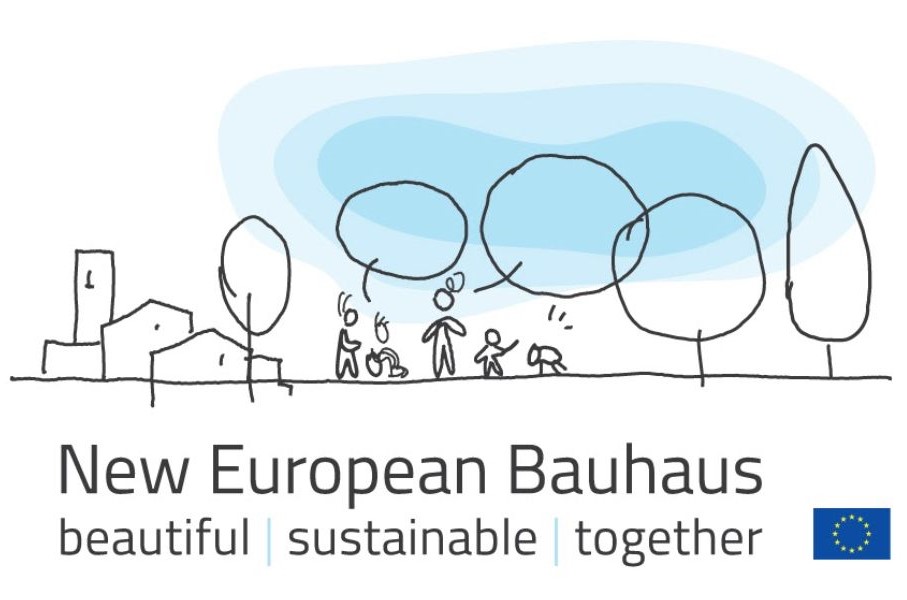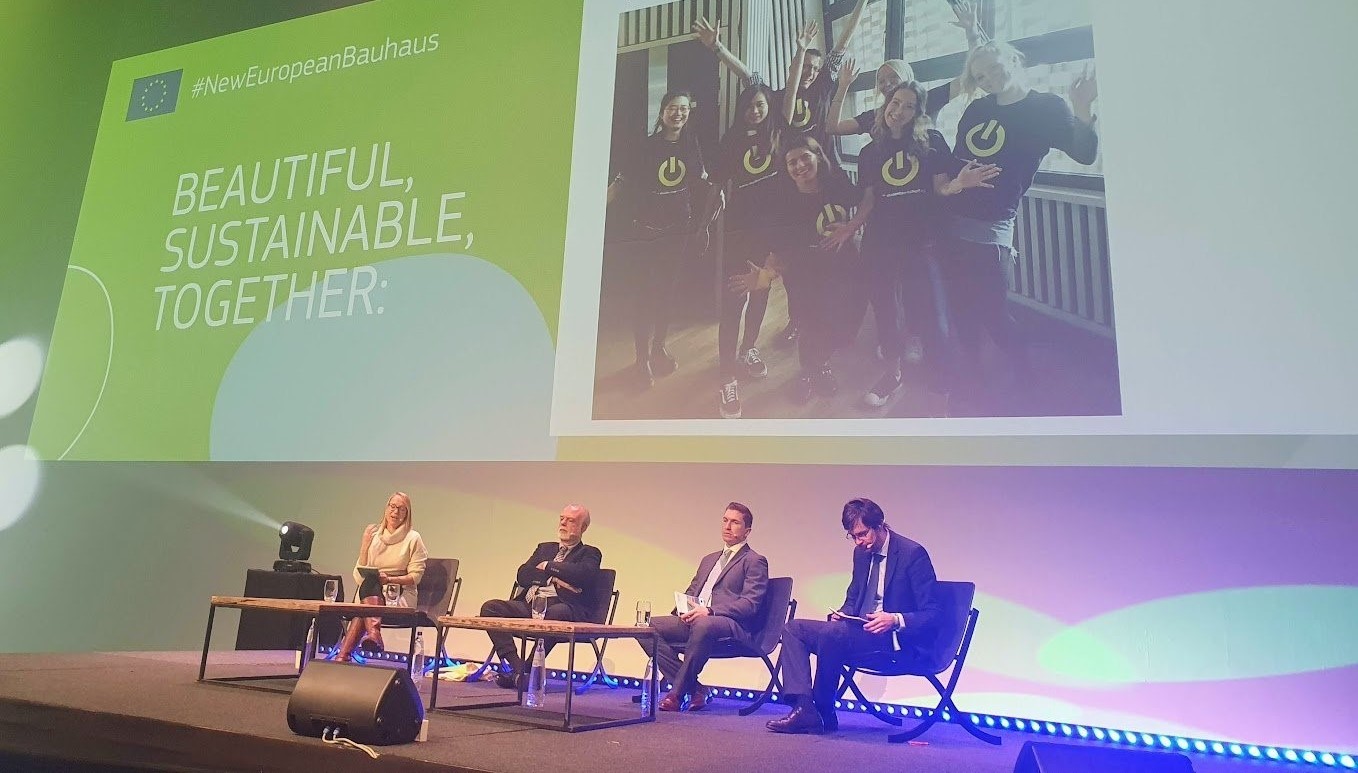 The European Commission has initiated the New European Bauhaus (NEB) movement, to create a bridge at the crossroad between art, culture, social inclusion, science, and technology. The NEB is the soul of the European Green Deal and translates its goals through a number of policy actions and funding possibilities into a tangible, positive change in buildings and public spaces, but also in fashion and furniture.
The European Commission has initiated the New European Bauhaus (NEB) movement, to create a bridge at the crossroad between art, culture, social inclusion, science, and technology. The NEB is the soul of the European Green Deal and translates its goals through a number of policy actions and funding possibilities into a tangible, positive change in buildings and public spaces, but also in fashion and furniture.
The LIFE programme’s response to the NEB initiative was presented during a three-day hybrid platform conference on 15-17 November on the broad, inter-connected themes of Behavioural Change (Day 1), Urban Transformation (Day 2) and Nature-Based Solutions (Day 3) for the movement’s success. MIO-ECSDE and the European Environmental Bureau were there!
The high-level conference showcased multidisciplinary and creative projects financed through the LIFE and Horizon 2020 programmes working on different aspects (technological ideas, circularity, sustainable building design, energy efficiency, societal behavioural change) of the necessary transformation for a carbon-neutral 2050 that can also provide inspiration for new projects to support a wider diffusion of the NEB values:
- sustainability, from climate goals to circularity and energy-efficient buildings, zero pollution, and biodiversity
- aesthetics, quality of experience and style, beyond functionality
- inclusion, from valorising diversity to securing accessibility and affordability
In line with the NEB’s delivery phase, the high-level conference provided an opportunity to recent nominees and winners of the first New European Bauhaus prize to present their work, stimulate replicability, and upscale successful solutions (€13 million in LIFE funding have been earmarked for upcoming NEB projects).
A main point of the discussion was how the original Bauhaus idea of introducing “quality” to the first wave of mass production in the early 1900s is revived and adopted in this new transition period within which 35 million buildings could be renovated, become energy-efficient and up to 160,000 additional green jobs could be created in the coming few years to reach the EU targets for 2030.
MIO-ECSDE was among the invited speakers of Day 1, in the session focusing on ‘Incentivising a behavioural change towards more sustainable practices’ and radiated one of the main take-home messages of the discussion: “Education, education, education!”.
The Chairperson of MIO-ECSDE, Prof. Michael Scoullos made a spirited intervention around the concept of incentives and the corresponding level of sophistication and explained how the socio-cultural and market incentives should greatly differ when targeting individual ownership and the business sector. During his statement, he highlighted that in order to enhance purposeful change of mindsets and master the culture of living, Education for Sustainable Development is deemed crucial to elevate the principles of responsibility (ethos) and citizenship instead of benefits of material nature.
“The ‘stick and carrot’ approach is perhaps effective for businesses or communities sharing benefits, but not for humans and particularly the youth and that is completely different from discipline and award which respects the will and principles of individuals.” he said. His position resonated and influenced the discussions. As a result, many references were made in the spirit of what the New European Bauhaus should strive for in its future implementation.
Providing clear information, creating a narrative, fostering group trust, and managing collective emotions were also considered essential in influencing behaviors by the speakers. Nonetheless, one of the main challenges is focusing on the individual while remaining flexible to design and implement effective long-term strategies.
It was great for MIO-ECSDE to participate live in the discussions of the new changemakers and hopes the European Union will not ignore that adaptation to the local context and challenges is key and invest more in education at all levels and types (formal, non-formal, informal) to enable true societal systemic and inclusive innovation as the New European Bauhaus envisions.
You can watch Prof. Scoullos’ intervention here and find out more about the event here.
Read in French here

Panellists of the session ‘Incentivising a behavioural change towards more sustainable practices’. From left to right: Ms. Joanna Romanowicz (Director of Engagement Students Organising for Sustainability UK, National Union of Students, H2020-SAVES2), Prof. Michael Scoullos (Chairperson of MIO-ECSDE, LIFE20 NGO/BE/200032), Prof. Klöckner Christian (Professor in environmental psychology Norwegian University of Science, H2020–ENCHANT), Mr. Michael Schembri (Chief Policy Officer, Energy and Water Agency, LIFE16 IPE/MT/000008-LIFE-IP RBMP-MALTA), Filip Van den Abeele (Facilitator of the event and moderator at Read My Lips).